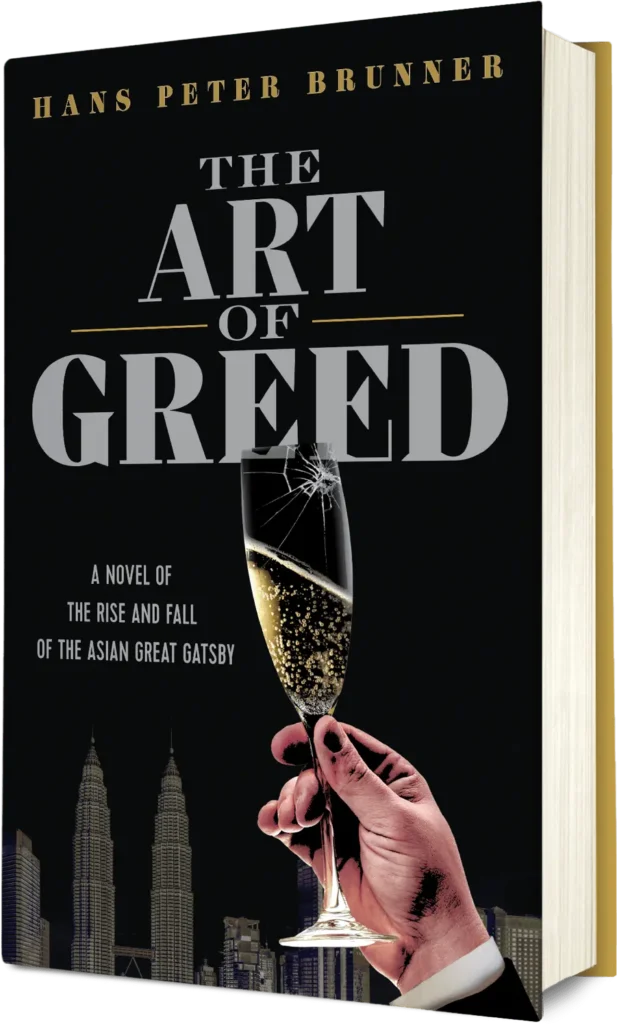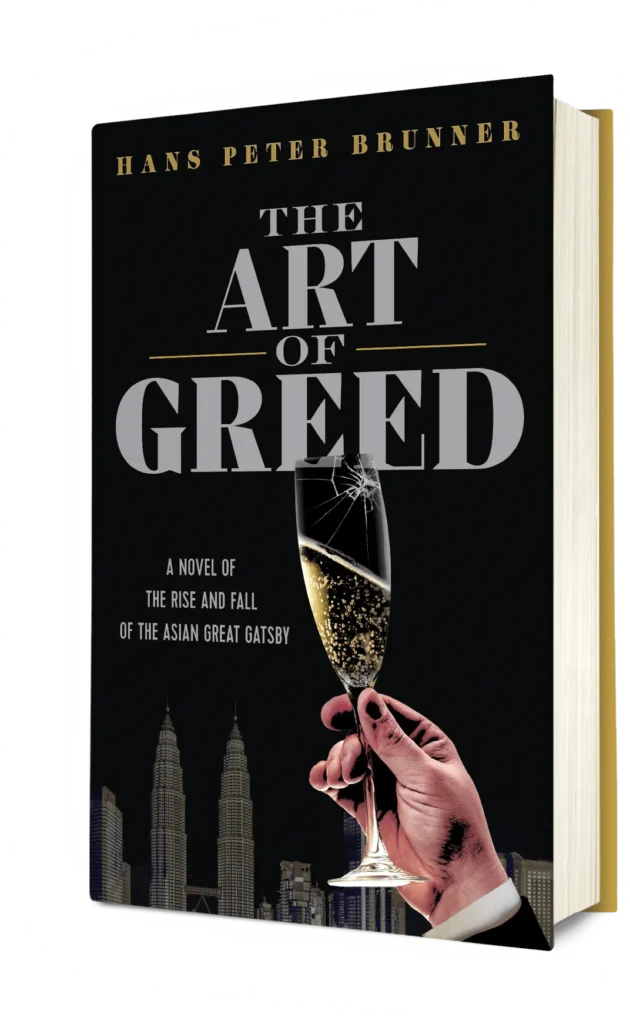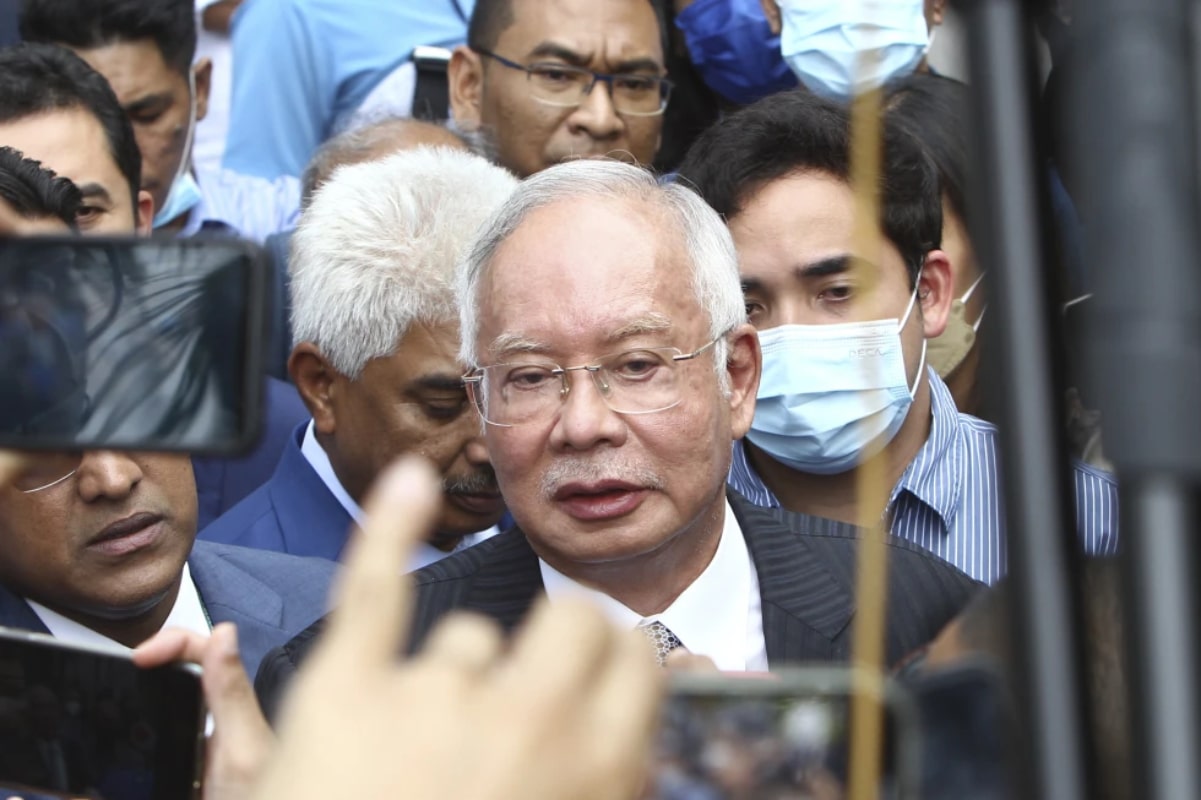The Asian Great Gatsby
Succumb to the intoxicating world of wealth, prestige, and celebrity in this fictional novel told from the perspective of someone who was there.
About the book
An intricate choreography of greed

So concludes Jho Low, Malaysian businessman and mastermind of the notorious 1MDB scandal, as he narrates this fictional account of the affair. All told, Jho Low siphoned $4.5 billion from a Malaysian sovereign wealth fund.
This imagined retelling of Jho Low’s story, based on real events, gives readers an insider’s view of the glitzy, glamorous world of wealth and privilege, as well as a close-up look at this enigmatic protagonist’s high-stakes fall from grace. The narrator is quirky yet eloquent, at times thoughtful and other times brash, as he leads readers through the corridors of power, where the line between friend and foe blurs. As secrets unravel and fortunes teeter on the edge, readers get a front-row seat to the dark underbelly of high finance and the price of unchecked ambition and greed.
Ivanka Trump was the type of girl I liked to have around me
Her rejection of my invite to party at the Trump Plaza Hotel and Casino turned into a unique opportunity later on, one that few people can say they’ve ever experienced. But I’m going to
tell you all about that in context later on. It’s an interesting story, so you might want to stick around.
Try a sip of The Art of Greed
Sign up and receive a free book preview delivered right to your inbox. Warning: once you get a taste, who knows how far you’ll go to try every last drop?
Reviews
The Art of Greed by Hans Peter Brunner is a razor-sharp thriller of Jho Low's meteoric rise and devastating fall in the world of global finance. Narrated from Low's perspective, the novel is a satirical yet penetrating look at ambition, corruption, and the moral decay inherent in unchecked financial power. From high-stakes deals to dazzling international parties, the story tracks Low's journey through a world of extraordinary privilege and inevitable downfall. The story is at once entertaining and critical, questioning the fundamental structures of global financial systems and the personal moral compromises required to navigate them. The author uses a real-world financial scandal as a compelling exploration of human nature, ambition, and the dangerous allure of unlimited wealth and power.
Author Hans Peter Brunner transforms complex financial issues into gripping, accessible storytelling. He has captured the nuanced personality of Jho Low, revealing both his charm and his fundamental moral contradictions. The story is entertaining and insightful, offering a critique of global financial systems through a personal lens. The pacing is impeccable, taking readers through glamorous highs and increasingly tense, inevitable lows with remarkable skill. The detailed depictions of the financial world lend authenticity to the plot, while the exploration of morality and power means the story resonates far beyond its immediate context. Brunner blends satirical elements with a profound cautionary tale, transforming what could be a simple biographical account into a complex examination of human nature. The way the author navigates the moral complexities of this subject is nothing short of brilliant. His writing is part thriller, part social critique, and part character study. Overall, I would enthusiastically recommend The Art of Greed as a groundbreaking novel that redefines financial storytelling.

This gripping debut by Brunner captures the unchecked greed and moral decay revealed by the notorious 1Malaysia Development Berhad (1MDB) scandal, weaving a fictionalized account of one of the most shocking financial debacles in modern history, which reverberated across Southeast Asia and beyond. At the heart of the story is the enigmatic Jho Low, whose meteoric rise and disgraced downfall serve as a cautionary tale. Brunner’s insider perspective—gained during his tenure as head of BSI Bank’s Singapore-based Asia operations—brings a sense of authenticity to a novel that blurs the lines between fiction and memoir. Brunner’s unique vantage point brings pained depth and insight to his portrayal of extravagant, often shameful financial escapades.
Brunner himself was implicated in the scandal but later exonerated, though his career in the finance industry was irrevocably damaged, a fact that charges this fictional account with pained purpose. The novel’s narrative traces the transformation of its version of Low from an ambitious young man into a symbol of excess. Born into relative wealth but yearning for the trappings of true billionaire status, this Low strategically cultivates relationships with influential figures, including classmates at Wharton and even Donald Trump through his daughter, Ivanka. This Low’s partnership with Malaysian defense minister (and eventual prime minister) Najib Razak, fueled by audacious schemes and ostentatious displays of wealth—such as showering Razak’s wife, Rosmah, with priceless jewelry—cemented Low’s rise while sowing the seeds of their mutual ruin.
Brunner’s intricate understanding of financial mechanisms lends credibility to the vivid depiction of billions siphoned away for flagrant, unrestrained spending. The very fact of Brunner’s choice to fictionalize adds tension to the telling, as the narrator’s claim that divulging too much, like his current location, “would put me in serious peril,” creates house-of-mirrors paranoia. Readers are left grappling with the audacity of Low’s schemes, the cost others have paid, and the unsettling question of how we all pay for those who can’t accept that they have enough.



About Author Hans Peter Brunner
An international banker for more than forty-five years, Hans Peter Brunner began his career with Credit Suisse (CS), where he worked for twenty-seven years, eventually specializing in private banking.
Brunner was the first Swiss banker in China, opening CS’s representative office in Beijing in 1985. Three years later, he was promoted to head of North Asia, overseeing people working in offices in South Korea, Beijing, and Hong Kong. Under Brunner’s leadership, the North Asian region became one of the most profitable areas of CS.
Later, Brunner left CS to become chief operating officer of the Asian region of Coutts International, based in Singapore. By 2000, he had risen to CEO, based in Zurich.
In 2010, Brunner became head of BSI Bank’s Singapore-based Asia operations, building it from virtually the ground up into a highly profitable operation with more than two hundred employees, many of whom had followed him from Coutts to BSI.
His awards include being voted Outstanding Private Banker, Asia Pacific, by Private Banker International in 2008 and Asian Private Banker of the Year 2010 by Asian Private Banker in 2011.
A Swiss citizen, Brunner resides in Singapore with his wife of thirty-eight years. They have two sons.



